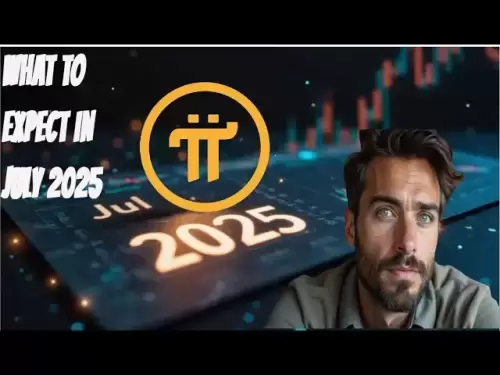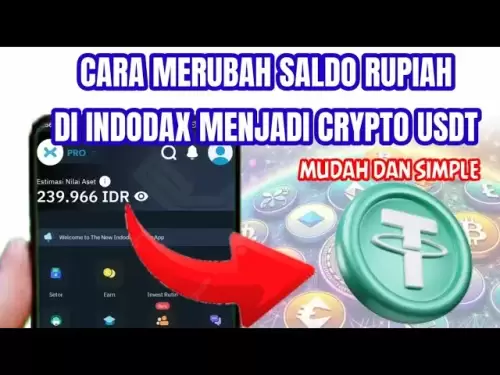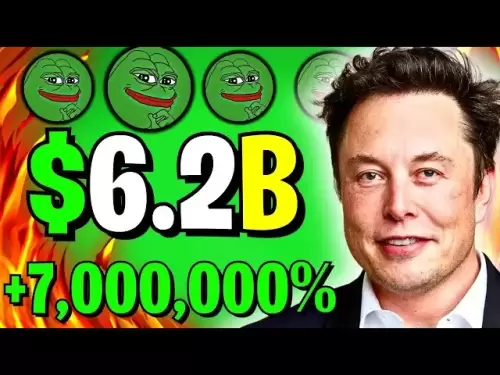-
 Bitcoin
Bitcoin $106,731.2224
-1.05% -
 Ethereum
Ethereum $2,444.9804
-1.20% -
 Tether USDt
Tether USDt $1.0003
0.01% -
 XRP
XRP $2.1882
0.09% -
 BNB
BNB $651.1435
-0.61% -
 Solana
Solana $148.3252
-2.09% -
 USDC
USDC $1.0000
0.01% -
 TRON
TRON $0.2787
0.55% -
 Dogecoin
Dogecoin $0.1598
-3.16% -
 Cardano
Cardano $0.5520
-2.43% -
 Hyperliquid
Hyperliquid $39.0960
-2.64% -
 Bitcoin Cash
Bitcoin Cash $516.9519
2.98% -
 Sui
Sui $2.7011
-2.95% -
 Chainlink
Chainlink $13.0582
-1.71% -
 UNUS SED LEO
UNUS SED LEO $8.9250
-2.53% -
 Stellar
Stellar $0.2359
-0.18% -
 Avalanche
Avalanche $17.3856
-3.73% -
 Toncoin
Toncoin $2.8095
-3.56% -
 Shiba Inu
Shiba Inu $0.0...01121
-1.95% -
 Litecoin
Litecoin $85.2795
-0.85% -
 Hedera
Hedera $0.1471
-2.15% -
 Monero
Monero $319.8004
1.12% -
 Dai
Dai $1.0001
0.01% -
 Ethena USDe
Ethena USDe $1.0001
0.02% -
 Bitget Token
Bitget Token $4.5344
-1.07% -
 Polkadot
Polkadot $3.3224
-2.96% -
 Uniswap
Uniswap $6.9697
-2.75% -
 Aave
Aave $266.1658
-2.25% -
 Pepe
Pepe $0.0...09414
-3.41% -
 Pi
Pi $0.4913
-3.29%
How does Trust Wallet optimize transaction fees to save Gas?
Trust Wallet helps users manage gas fees by offering tools to adjust gas prices and choose optimal transaction times, though it can't eliminate fees entirely.
Apr 05, 2025 at 07:07 pm
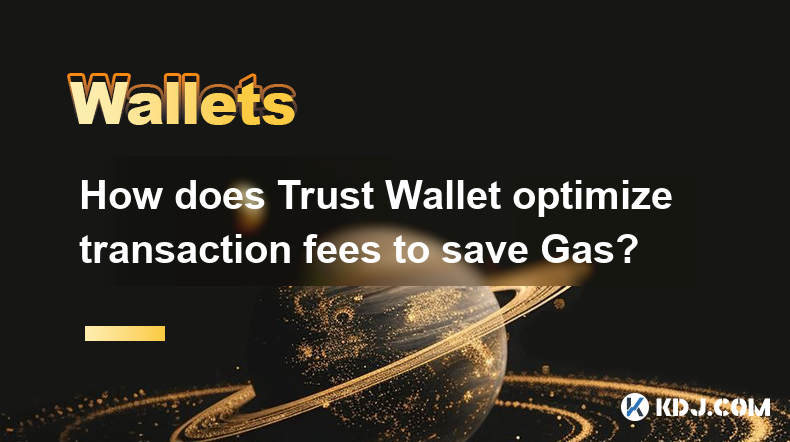
Understanding Gas Fees in Cryptocurrency Transactions
Trust Wallet, like other cryptocurrency wallets, interacts with various blockchains, each with its own fee structure. These fees, commonly called "gas fees," are essentially payments to miners or validators for processing and confirming transactions. The amount of gas required, and therefore the cost, depends on several factors including network congestion and the complexity of the transaction. High network activity leads to higher gas fees, making it crucial to understand how to optimize them. Trust Wallet doesn't directly control gas prices, but it offers tools to help users manage and minimize their expenses.
Trust Wallet's Approach to Gas Fee Optimization
Trust Wallet doesn't magically reduce network fees. Instead, it provides users with tools and information to make informed decisions about their transactions. This primarily involves giving users control over the gas price they're willing to pay. The wallet displays estimated gas fees before confirming a transaction, allowing users to adjust the "gas price" parameter. A higher gas price generally ensures faster transaction confirmation, while a lower price may lead to longer processing times or even transaction failure. The key is finding a balance between speed and cost.
Manually Adjusting Gas Fees in Trust Wallet
The most direct way to manage gas fees is by manually adjusting the gas price. Trust Wallet often provides suggestions for "low," "average," and "high" gas prices.
- Check the suggested gas prices: Trust Wallet usually displays estimated gas fees based on current network conditions. Consider these suggestions as a starting point.
- Understand the trade-off: A higher gas price prioritizes your transaction, leading to faster confirmation. A lower price may save you money but increases waiting time.
- Adjust the gas limit: This parameter defines the maximum amount of gas your transaction can consume. Setting it too low might result in transaction failure. Setting it too high will unnecessarily increase your fees. Accurate estimation is key.
- Monitor network congestion: Gas prices fluctuate depending on network activity. Consider sending transactions during periods of lower network congestion for potentially lower fees.
Using Trust Wallet's Features for Gas Optimization
Beyond manual adjustment, Trust Wallet incorporates several features that indirectly contribute to gas fee optimization.
- Batching Transactions: While not explicitly a gas fee reduction tool, batching multiple transactions into one can sometimes reduce the overall cost compared to sending them individually. This is because the gas fee is often calculated per transaction, not per asset transferred.
- Choosing the Right Network: If you have options to send transactions on different networks (e.g., different Ethereum Layer-2 solutions), choosing a less congested network can significantly lower gas fees. Trust Wallet often displays network fees for different options.
- Staying Informed: Keeping an eye on gas fee trackers and resources providing real-time network data can help you predict and anticipate periods of low congestion, allowing you to time your transactions strategically.
Understanding the Limitations of Gas Fee Optimization
It's crucial to understand that Trust Wallet's capabilities are limited by the underlying blockchain's mechanics. The wallet cannot magically reduce fees below the minimum required by the network. Furthermore, extreme network congestion can render even the most strategic gas fee adjustments ineffective. In such situations, patience and waiting for network conditions to improve might be the only option. The wallet provides tools to manage, not eliminate, gas fees.
Optimizing Gas Fees for Specific Tokens
Different tokens operate on different blockchains, each with its own fee structure. For example, gas fees on Ethereum are typically higher than on some Layer-2 solutions like Polygon or Arbitrum. Trust Wallet supports various blockchains, and understanding the fee structure of each is essential. The wallet will usually display the estimated gas fees for the specific token and network you're using. This allows you to compare costs before initiating a transaction.
The Role of Gas Price Estimation in Trust Wallet
Trust Wallet utilizes algorithms and data from the network to estimate gas fees. These estimations are not perfect and can vary. Unexpected spikes in network activity might lead to higher-than-estimated fees. It's always advisable to have a buffer in your funds to accommodate potential fluctuations. While the wallet tries to provide accurate estimates, unforeseen circumstances can impact the final cost.
Security Considerations When Optimizing Gas Fees
While optimizing gas fees is important, it shouldn't compromise security. Avoid extremely low gas prices, as this can increase the risk of your transaction being delayed or failing altogether. This can leave your funds in limbo, potentially vulnerable to exploits. A balance between cost savings and security is essential. Trust Wallet's security measures help protect against malicious actors, but responsible gas fee management is crucial for your own protection.
Frequently Asked Questions
Q: Can Trust Wallet completely eliminate gas fees?
A: No, Trust Wallet cannot eliminate gas fees. It only provides tools to help users manage and potentially minimize them. Gas fees are inherent to the blockchain's operation.
Q: How often do gas fees change?
A: Gas fees are dynamic and change constantly based on network congestion. They can fluctuate within minutes or hours.
Q: What happens if I set the gas price too low?
A: If you set the gas price too low, your transaction might be delayed significantly or fail altogether. Your funds may not be lost, but the transaction will remain unconfirmed.
Q: Is there a way to predict gas fees accurately?
A: While Trust Wallet provides estimates, accurately predicting gas fees is difficult due to the dynamic nature of blockchain networks. Monitoring network activity and gas fee trackers can help.
Q: What if my transaction fails due to insufficient gas?
A: If your transaction fails due to insufficient gas, your funds are usually returned to your wallet. However, you will have lost the gas already paid.
Q: Are there any hidden fees in Trust Wallet related to gas?
A: No, Trust Wallet itself doesn't charge any additional fees beyond the network's gas fees. All fees are transparently displayed before confirming the transaction.
Disclaimer:info@kdj.com
The information provided is not trading advice. kdj.com does not assume any responsibility for any investments made based on the information provided in this article. Cryptocurrencies are highly volatile and it is highly recommended that you invest with caution after thorough research!
If you believe that the content used on this website infringes your copyright, please contact us immediately (info@kdj.com) and we will delete it promptly.
- Cold Wallet, Token, Gains: Is CWT the Smartest Crypto Move?
- 2025-07-02 01:10:12
- Pi Coin's Rocky Ride: Support Levels, Recovery Timeline, and What the Experts Are Saying
- 2025-07-02 01:10:12
- Shiba Inu, Ozak AI, and Cryptocurrency: Navigating the Meme Coin Maze
- 2025-07-02 01:15:12
- Solana Meme Coin Mania: Trading Bots Take Center Stage
- 2025-07-02 01:15:12
- UniCredit, Bitcoin, and BlackRock ETF: A New Era of Crypto Investment?
- 2025-07-02 00:30:12
- UniCredit, Bitcoin ETF, and BlackRock: A New York Minute on Crypto's Big Players
- 2025-07-02 00:30:12
Related knowledge
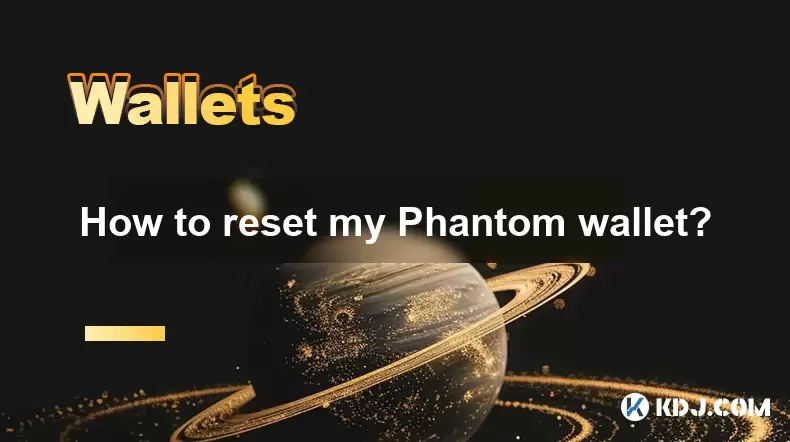
How to reset my Phantom wallet?
Jul 02,2025 at 12:36am
Understanding the Need for Resetting Your Phantom WalletIf you're using a Phantom wallet, you may encounter situations where resetting your wallet becomes necessary. This could be due to forgotten passwords, seed phrase issues, or account corruption. Phantom is a non-custodial wallet primarily used for interacting with the Solana blockchain, and it stor...
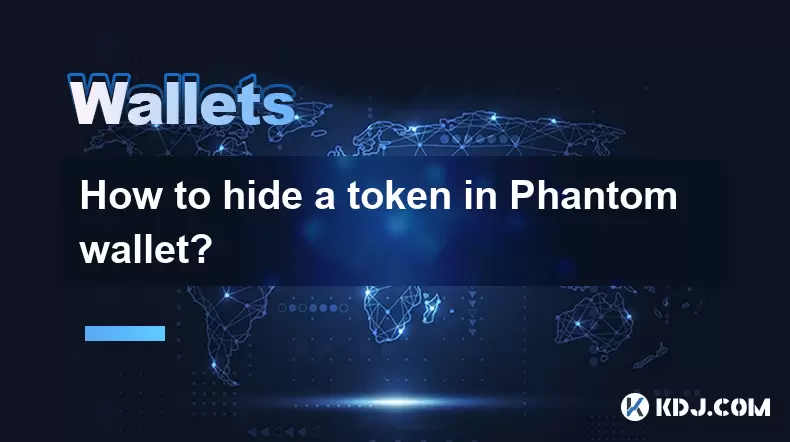
How to hide a token in Phantom wallet?
Jul 01,2025 at 05:49pm
Understanding the Phantom Wallet InterfacePhantom wallet is a popular non-custodial wallet used primarily for interacting with the Solana blockchain. It allows users to store, send, receive, and manage various tokens, including both fungible and non-fungible tokens (NFTs). Before attempting to hide a token, it's essential to understand how the wallet in...
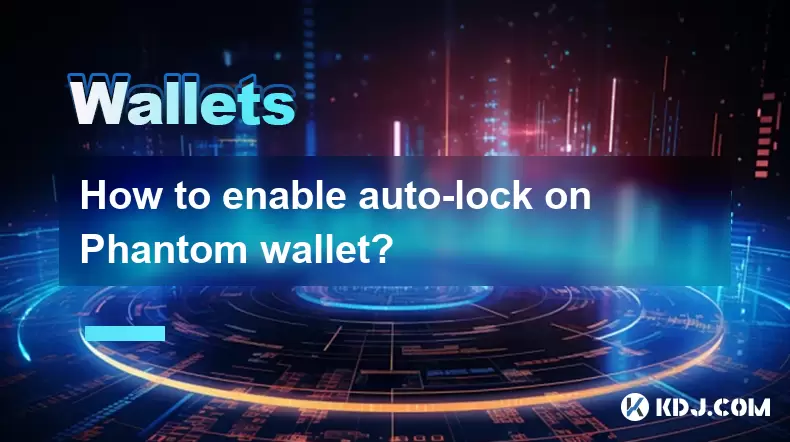
How to enable auto-lock on Phantom wallet?
Jul 01,2025 at 04:01pm
What is Auto-Lock in Phantom Wallet?Phantom wallet is a popular non-custodial cryptocurrency wallet used primarily for interacting with the Solana blockchain. One of its security features includes the ability to set an auto-lock timer, which ensures that the wallet locks itself automatically after a period of inactivity. Auto-lock enhances security by p...
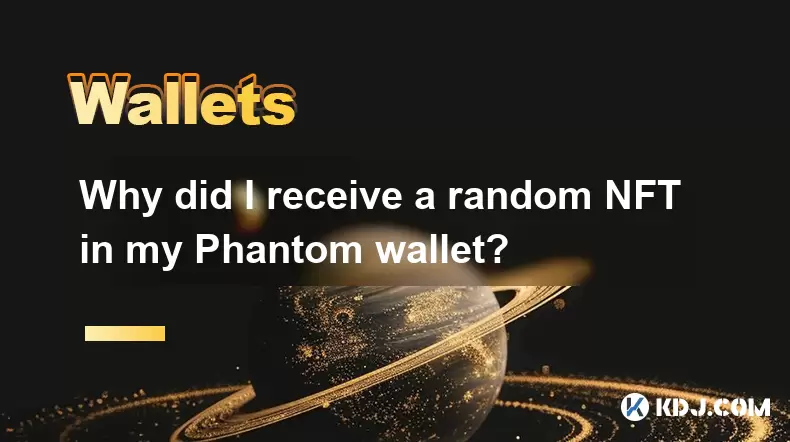
Why did I receive a random NFT in my Phantom wallet?
Jul 01,2025 at 09:00pm
Receiving an Unexpected NFT in Your Phantom WalletIf you've recently opened your Phantom wallet and noticed an unfamiliar NFT appearing in your collection, you're not alone. Many users have reported receiving random or unsolicited non-fungible tokens, often without any prior interaction with the project or sender. This phenomenon has become increasingly...
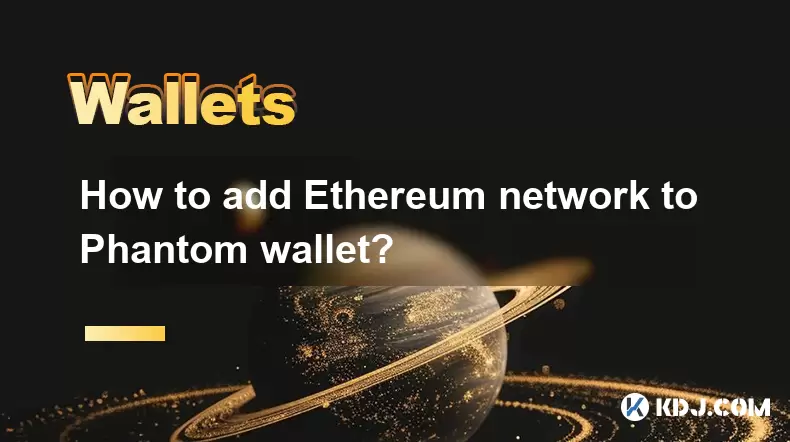
How to add Ethereum network to Phantom wallet?
Jul 02,2025 at 02:00am
Understanding Phantom Wallet and Ethereum CompatibilityPhantom wallet is a non-custodial wallet primarily designed for the Solana blockchain. It provides users with secure storage, sending, and receiving of Solana-based tokens and NFTs. However, many users wonder if they can integrate Ethereum-compatible networks into their Phantom wallet. While Phantom...
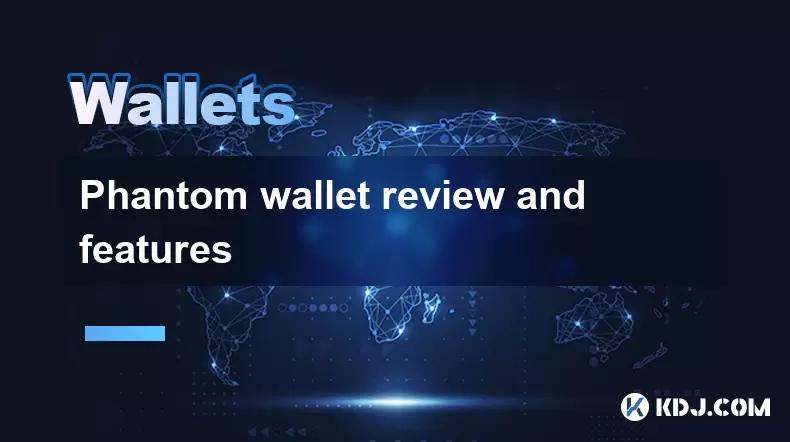
Phantom wallet review and features
Jul 02,2025 at 01:28am
What is Phantom Wallet?Phantom wallet is a non-custodial cryptocurrency wallet specifically designed for the Solana blockchain. It allows users to store, send, receive, and interact with decentralized applications (dApps) on the Solana network seamlessly. Unlike traditional wallets that may require intermediaries, Phantom ensures complete control remain...

How to reset my Phantom wallet?
Jul 02,2025 at 12:36am
Understanding the Need for Resetting Your Phantom WalletIf you're using a Phantom wallet, you may encounter situations where resetting your wallet becomes necessary. This could be due to forgotten passwords, seed phrase issues, or account corruption. Phantom is a non-custodial wallet primarily used for interacting with the Solana blockchain, and it stor...

How to hide a token in Phantom wallet?
Jul 01,2025 at 05:49pm
Understanding the Phantom Wallet InterfacePhantom wallet is a popular non-custodial wallet used primarily for interacting with the Solana blockchain. It allows users to store, send, receive, and manage various tokens, including both fungible and non-fungible tokens (NFTs). Before attempting to hide a token, it's essential to understand how the wallet in...

How to enable auto-lock on Phantom wallet?
Jul 01,2025 at 04:01pm
What is Auto-Lock in Phantom Wallet?Phantom wallet is a popular non-custodial cryptocurrency wallet used primarily for interacting with the Solana blockchain. One of its security features includes the ability to set an auto-lock timer, which ensures that the wallet locks itself automatically after a period of inactivity. Auto-lock enhances security by p...

Why did I receive a random NFT in my Phantom wallet?
Jul 01,2025 at 09:00pm
Receiving an Unexpected NFT in Your Phantom WalletIf you've recently opened your Phantom wallet and noticed an unfamiliar NFT appearing in your collection, you're not alone. Many users have reported receiving random or unsolicited non-fungible tokens, often without any prior interaction with the project or sender. This phenomenon has become increasingly...

How to add Ethereum network to Phantom wallet?
Jul 02,2025 at 02:00am
Understanding Phantom Wallet and Ethereum CompatibilityPhantom wallet is a non-custodial wallet primarily designed for the Solana blockchain. It provides users with secure storage, sending, and receiving of Solana-based tokens and NFTs. However, many users wonder if they can integrate Ethereum-compatible networks into their Phantom wallet. While Phantom...

Phantom wallet review and features
Jul 02,2025 at 01:28am
What is Phantom Wallet?Phantom wallet is a non-custodial cryptocurrency wallet specifically designed for the Solana blockchain. It allows users to store, send, receive, and interact with decentralized applications (dApps) on the Solana network seamlessly. Unlike traditional wallets that may require intermediaries, Phantom ensures complete control remain...
See all articles





















